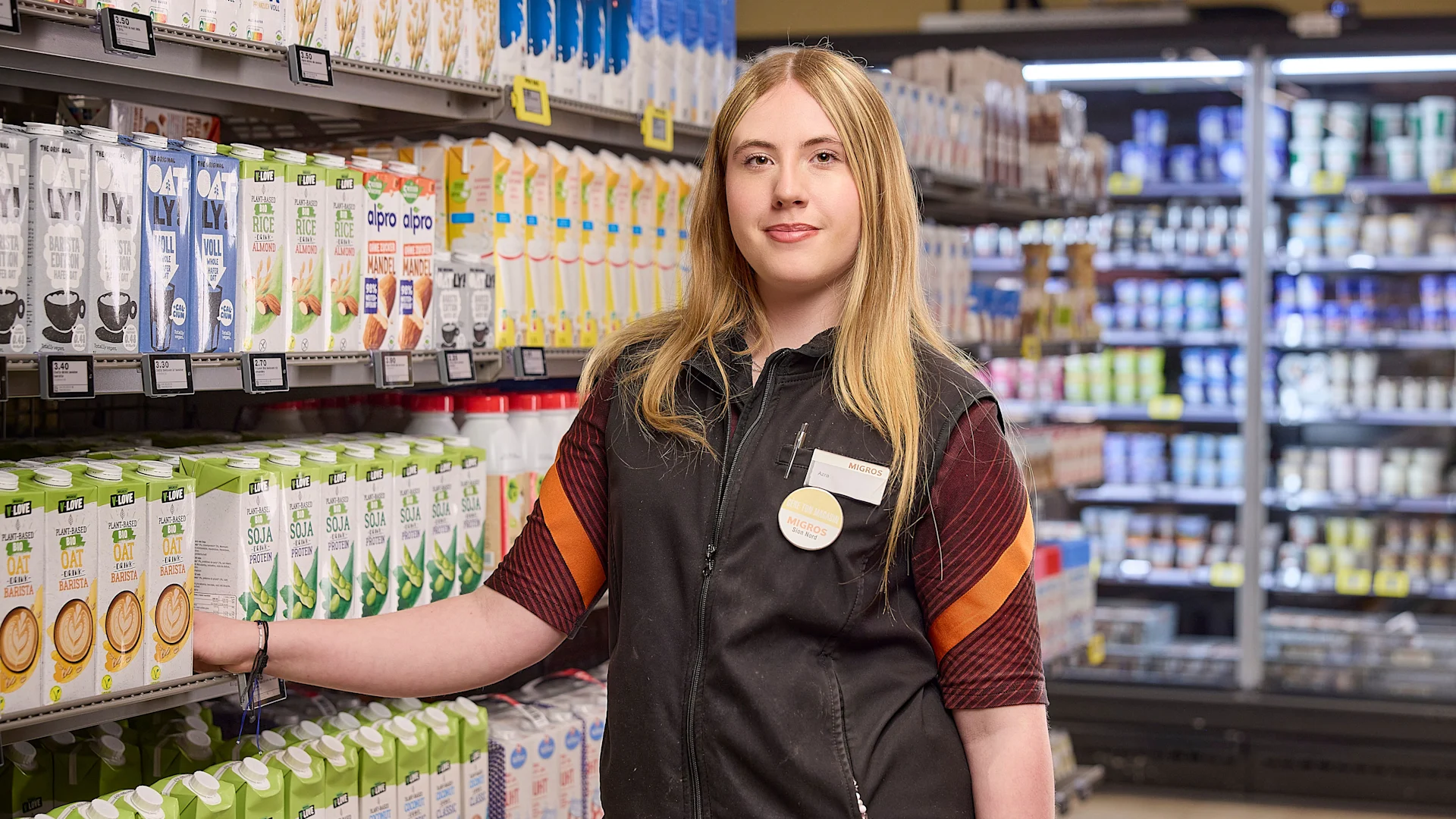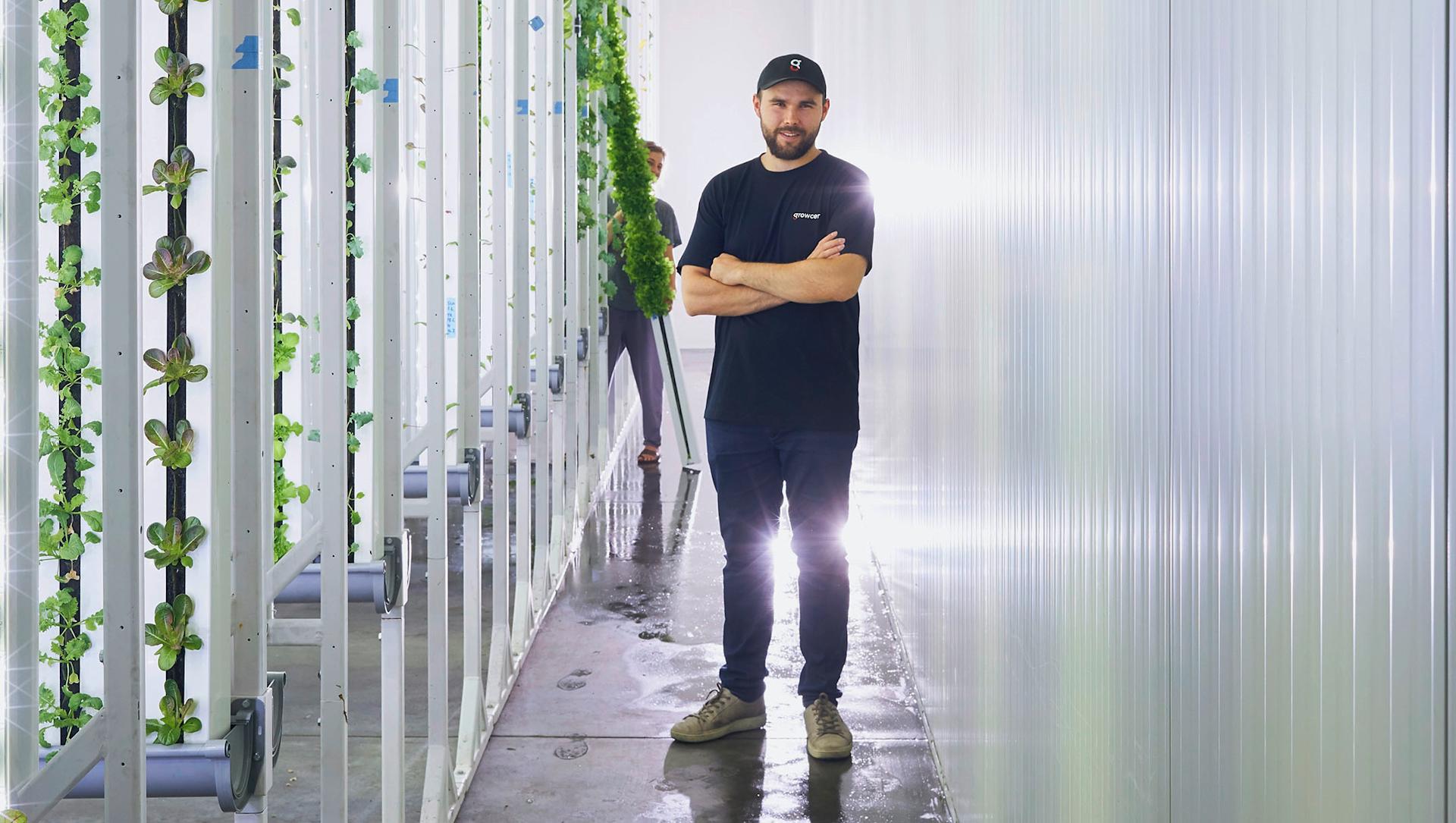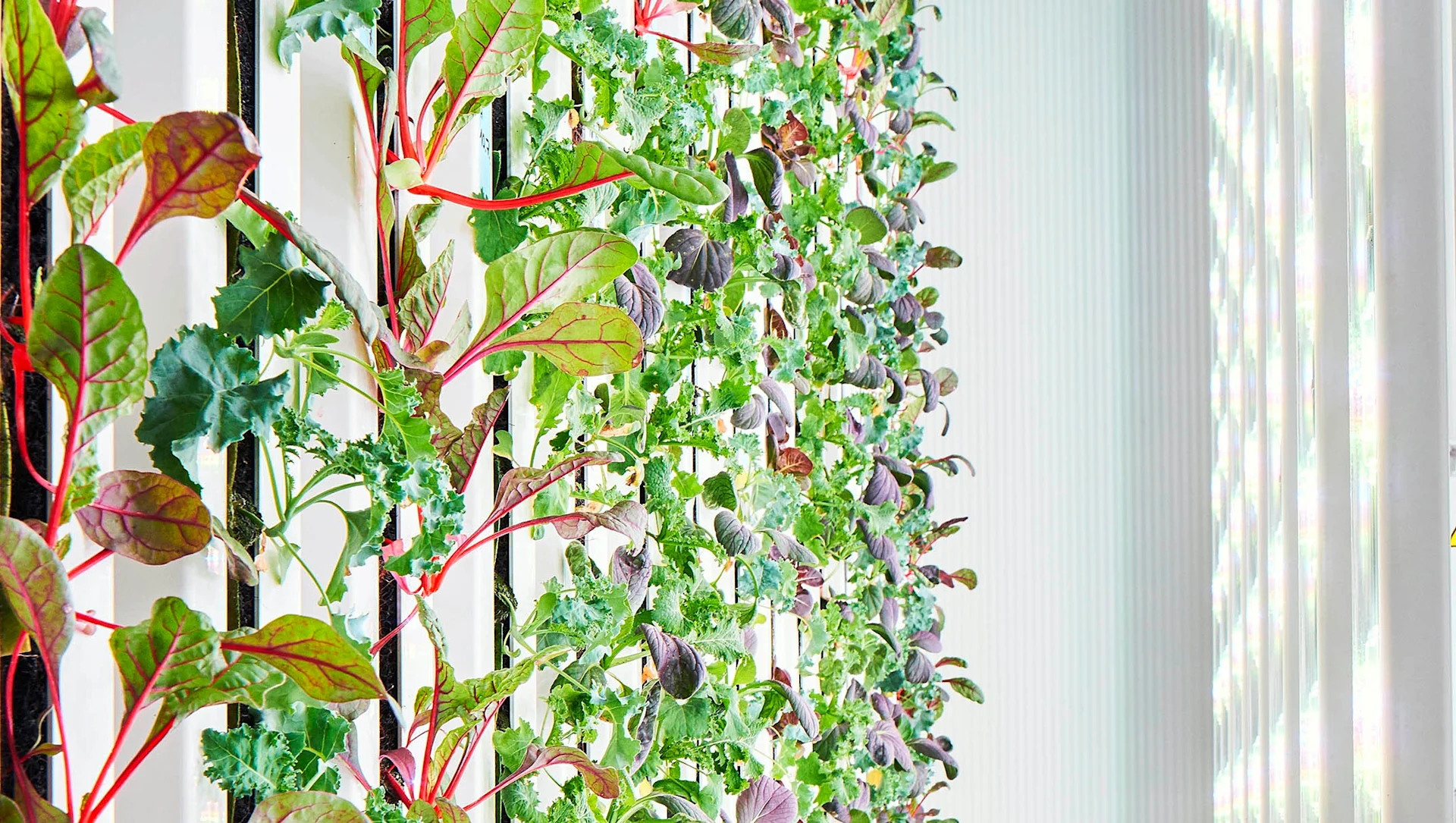
Work environment
Apprentices given management tasks
Apprentices ran a Migros store in Sion by themselves. We find out what they learned from the experience.
navigation

Vertical lettuce
The start-up Growcer combines technology and agriculture. A visit to Switzerland’s first vertical farm. Here, heads of lettuce grow in a month and freshly harvested herbs are in the Migros branch within hours.
A head of lettuce that grows in a month. Herbs for which less than an hour passes between harvest and arrival at the Migros store. Impossible? Not at the young company Growcer, which operates “vertical farming” behind Basel’s SBB railway station and supplies the Migros branch in the MParc Basel with vegetables. Vertical farming means that the vegetables grow upwards in a hall instead of outwards in the fields. On three-metre-high “towers” filled with coconut wool and peat, lettuce, wasabi rocket and herbs thrive in ideal conditions until they are ready for harvest after about four weeks, boasting even more nutrients than usual.
Long known in the USA and Asia, this form of agriculture is still new in Switzerland. “At the intersection of climate change, migration and food insecurity, it’s worthwhile to also use technology in agriculture,” says Marcel Florian. The 27-year-old is the founder and CEO of Growcer and is fascinated by innovation. Before founding Growcer, he had already successfully launched two technology companies. Typical of his generation, at some point he asked himself the essential question: “I wanted to address the issue of resource-efficient food production and the challenges in agriculture. That’s why I founded Growcer in February 2019. We can be part of the solution.” Today, 15 people work in the start-up, many from the IT sector, but also agronomists, commercial staff and people who take care of sowing and harvesting.
Upon entering what they call the chambers where the vegetables grow, it immediately becomes clear: nothing is left to chance here. The plants are nourished by an ingenious irrigation system. The hermetically insulated room has a consistent, almost tropical climate – 29.5 degrees during the day, 18 degrees at night, 90 percent humidity.
“Vertical farming can be part of the solution to how we feed all the world’s people in the future.”
The violet light comes from LED lamps that are adapted to the needs of the individual vegetable varieties. They glow bluish for herbs, reddish when vegetables are to grow in height. These optimal conditions ensure that some vegetables grow almost twice as fast as they do in the field. Most notably, Growcer can produce all year round and thus also counter-cyclically, which means that imports can be reduced. “We took a very close look at nature and are now getting the best out of it,” Florian explains. On a screen, right next to the chambers, he demonstrates how the individual elements can be adjusted with pinpoint accuracy: the LED lamps, the temperature, the humidity and the irrigation. At the same place, individual labels are printed for the freshly harvested vegetables. These include a QR code that customers can use to find out more about the product: when and where it was sown, when it was harvested and when it was packaged. Soon, it will also contain information on nutritional content, CO2 consumption and recipe suggestions.
Growcer has no intention of competing with conventional agriculture. On the contrary: “We currently produce only about one percent of the amount of leafy vegetables needed for Migros Basel,” says Florian. Rather, the aim was to work as anti-cyclically as possible, that is, to harvest when goods would otherwise have to be imported from far away. Or to grow varieties that are not normally available here in the country: “Our Thai basil, for instance, grows all year round. Until now, it had to be imported from Asia.” It is also interesting to see what customers buy most often: “The top seller is the tasty wasabi rocket,” reveals the young entrepreneur. The product currently costs CHF 3.95 per pack.

“We want to relieve consumers of that guilty conscience.”
In the future, Growcer also wants to produce for other Migros cooperatives, and a second location in the St. Gallen region is being planned. It is required so that the transport routes remain as short as possible. Growcer has also thought of something for Christmas: “If we buy vegetables and fruits that are not in season, we feel guilty, but we buy them anyway. We want to relieve consumers of that guilty conscience.” That’s why Growcer is growing strawberries at the moment. A Christmas present from the region, without a guilty conscience.
The ultra-fresh, crunchy leafy vegetables are available at the Migros supermarket in MParc Dreispitz, Migros Drachen-Center and Migros Oberwil.
Short transport routes
The farm is located close to the consumer. This means that the products are fresh and the transport routes are short, which reduces spoilage and saves CO2.
Low resource consumption
Vertical farming is not affected by the weather and is space-saving. Up to 90 percent less water is needed than in conventional agriculture. Vertical farming requires electricity, but this comes from hydropower and solar energy.
Organic or not?
Organic products must be grown in soil. That’s why Growcer products do not have an organic label. However, the expectations of organic produce are exceeded, because in addition to the organic cultivation method, pesticides are fundamentally eliminated and the products are produced locally all year round.
Robots instead of humans?
Growcer currently has two robots that take on repetitive and tedious tasks such as lifting out the plants. This makes people’s work easier, but the farm will never be entirely without people.
Vitamins and nutrients
The vitamin and nutrient content of the products is generally higher than in conventional cultivation, as the vegetables arrive at the shop faster and fresher. In addition, the plants grow nutrient-rich because of the optimal growing conditions.
Flavour
As the vegetables are constantly exposed to the best conditions, they have a full, intense flavour in addition to the high nutrient content.
Discover exciting stories about all aspects of Migros, our commitment and the people behind it. We also provide practical advice for everyday life.